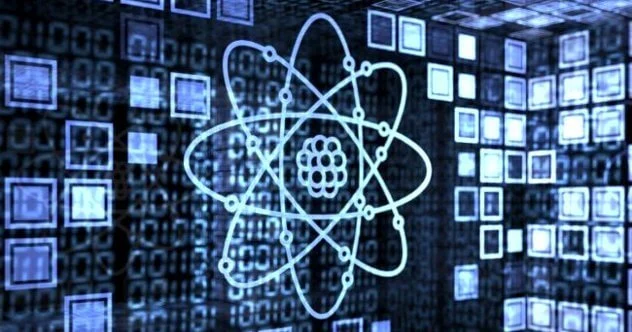The Role of Quantum Computing in Solving Complex Scientific Problems
Author: Георгий Горшков

Quantum computing is one of the most exciting and promising areas in the field of computer science and physics. Their main idea is to use the principles of quantum mechanics to process information. In recent years, this approach has attracted more and more attention from scientists and engineers due to its ability to solve problems that are unsolvable or require huge resources on classical computers. In this article, we will explore how quantum computing can change the way we solve complex scientific problems in various fields of science.
Fundamentals of quantum computing
Quantum computing is based on the principles of quantum mechanics, such as superposition and entanglement. Unlike classical bits, which can be in a state of 0 or 1, quantum bits (qubits) can be in a state of superposition, being a combination of 0 and 1 at the same time. This allows quantum computers to process information in parallel, which significantly speeds up the solution of some problems.
In addition, quantum entanglement allows qubits to be interconnected in such a way that a change in the state of one qubit instantly affects the state of another, regardless of the distance between them. This property allows quantum computers to perform complex calculations more efficiently compared to classical machines.
Application in solving complex scientific problems
Chemistry and materials
Quantum computers have the potential to revolutionize chemistry and materials science. They can simulate molecules and chemical reactions with high accuracy, which is difficult to do on classical computers due to the exponential growth of computational requirements with increasing molecular size. Quantum computing can significantly speed up the development of new materials and drugs, which is of great importance for science and medicine.
Physics and Astrophysics
In the fields of physics and astrophysics, quantum computers can be used to simulate complex physical systems, such as atomic nuclei, particle interactions, and cosmic phenomena. For example, quantum algorithms can help analyze data from space observations and solve problems related to gravitational waves and black holes.
Optimization and logistics
Optimization tasks such as finding the optimal route, resource allocation, and scheduling are often complex and computationally intensive. Quantum algorithms, such as Grover's algorithm and the quantum amplitude amplification algorithm, can significantly speed up the process of finding optimal solutions to such problems.
Artificial Intelligence and Machine Learning

Quantum computing opens up new horizons for the development of artificial intelligence and machine learning. Quantum algorithms can improve the processes of learning, processing, and analyzing data, allowing you to solve problems that require processing large amounts of information and complex calculations. For example, quantum algorithms can be used to speed up classification, regression, and clustering tasks.
Cryptography and Security
Quantum computing can also have a significant impact on cryptography and information security. While quantum computers can threaten existing cryptographic techniques such as RSA and ECC, they can also be used to create new, more secure cryptographic systems based on the principles of quantum mechanics.
Problems and challenges
Despite the promise that quantum computing brings, there are also significant problems and challenges. First, quantum computers are still in the development stage and have a limited number of qubits. The creation of stable and scalable quantum systems is one of the main tasks in this field.
Secondly, quantum computing requires new algorithms and approaches to solve problems, which requires significant efforts in the field of theoretical research and practical implementation.
Finally, there is the challenge of integrating quantum computers with existing computing systems and infrastructure. Addressing these challenges requires an interdisciplinary approach and collaboration between scientists, engineers, and industry.
Conclusion
Quantum computing has huge potential to solve complex scientific problems and can significantly change many areas of science and technology. Despite the existing problems and challenges, research in this area continues to move forward, and we can expect significant breakthroughs in the coming decades. Quantum computing promises to open up new horizons for science and technology, providing faster and more accurate solutions to a number of problems that today seem unsolvable.
Popular Articles

